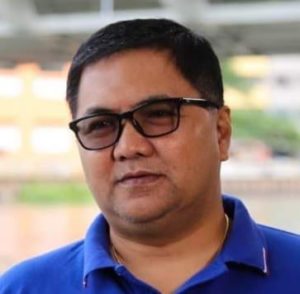
“Ito ay isang batas na magpapalaya sa atin lahat sa banta nang lahat nang uri nang terorismo dito sa bansa,” LIPI secretary-general Jose Antonio “Ka Pep” Goitia said Saturday in a statement.
Goitia said terror attacks have been hurting the country’s development initiatives and thanked President Rodrigo Duterte for signing it into law despite opposition from critics and civil liberties groups.
Duterte signed the Anti-Terrorism Act of 2020 after weighing the concerns of different groups, demonstrating the government’s commitment to stamping out terrorism, presidential spokesman Harry Roque said.
The law, which Congress sent to Malacañang for signing last month, allows the detention of suspects for up to 24 days without charge and empowers a government anti-terrorism council to designate suspects or groups as suspected terrorists who could then be subject to arrest and surveillance.
Military officials have cited the threat of terrorism, including from Islamic State group-linked Abu Sayyaf militants in the southern Philippines, as a reason why the country needs the law. It replaces a 2007 anti-terror law called the Human Security Act that has been rarely used, largely because law enforcers can be fined P500,000 pesos for each day they wrongfully detain a terrorism suspect.
Goitia played down fears the new law could be used against human rights defenders and to muzzle dissent.
“It is clearly stated in the 1987 Constitution under Bill of Rights that the Anti-Terrorism Council has mechanisms in place for potential human rights violations,” said the head of LIPI, a coalition of 48 organizations nationwide.
Opposition to the law has been mounting, with Catholic bishops saying the definition of terrorism under the law is so broad it could threaten legitimate dissent and civil liberties. The Integrated Bar of the Philippines, the largest group of lawyers in the country, and U.N. rights officials have also expressed concern along with nationalist groups and media watchdogs.
Opponents said the law violates the constitution, which restricts detention beyond three days without specific charges.
Lawmakers removed such safeguards in the new legislation, which increases the number of days that suspects can be detained without warrants from three to 24.
But Goitia said that “there are plenty of misconceptions and misinterpretations going around in several social media platforms” regarding the anti-terror law.
“Itong mga humahadlang at ayaw dito ay nung una pa man balakid at kritiko na sa mga magagandang plano nang administrasyong Duterte para sa totoong pagbabago at ikabubuti nang lahat at hindi ng iilang sector lamang ng lipunan,” he said.
Defense Secretary Delfin Lorenzana and other security officials allayed fears the law could be misused, saying it won’t be used against government opponents.
The legislation states that terrorism excludes “advocacy, protest, dissent, stoppage of work, industrial or mass action and other similar exercises of civil and political rights.”
For years, government troops have been battling Abu Sayyaf extremists who have been listed as terrorists by both the United States and the Philippines for ransom kidnappings, beheadings and bombings in the restive south.
In 2017, hundreds of armed men affiliated with the Islamic State group laid siege to Marawi City in Mindanao. Troops quelled the siege after five months in a massive offensive backed by the United States and Australia that left more than 1,000 people dead, mostly militants, and the mosque-studded city in ruins. With Associated Press